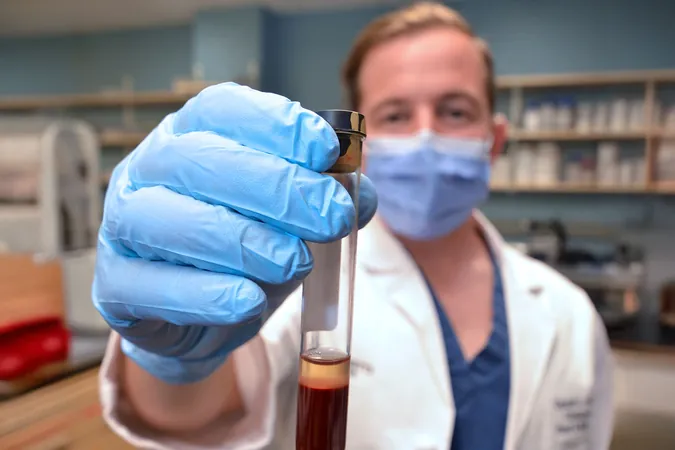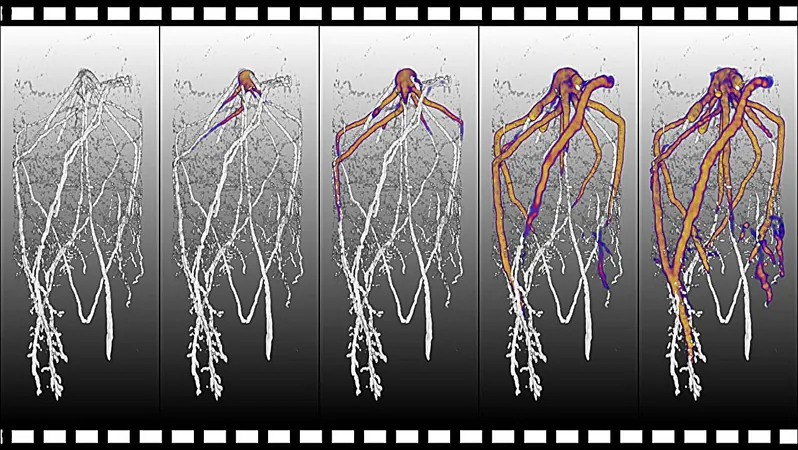
Confusion Reigns: Navigating COVID-19 Vaccine Decisions as School Year Begins
2025-09-10
Author: Rajesh
The Challenge of Mixed Messaging
As the 2025-2026 school year kicks off, parents are grappling with conflicting information about COVID-19 vaccinations for their kids. Under Health and Human Services Secretary Robert F. Kennedy Jr., pediatric COVID vaccines have shifted to a "shared clinical decision-making" model. Meanwhile, the American Academy of Pediatrics (AAP) continues to strongly advocate for vaccinations, particularly for children aged 6 to 23 months and those with high-risk conditions.
Ongoing Vaccination Requirements
In addition to navigating COVID-19 vaccine decisions, families must also ensure that their children receive standard school vaccines, further complicating the situation. In late August, the FDA granted approval for three COVID-19 vaccines—Pfizer-BioNTech’s Comirnaty, Moderna’s Spikevax, and Novavax’s Nuvaxovid—specifically for older adults and younger individuals with certain high-risk conditions. However, these approvals come with the caveat of requiring multiple follow-up studies.
Uncertainty Surrounding Availability
Despite the announcement of these approvals, there has been a lack of clarity on the availability of these vaccines. A federal notice indicated that the Advisory Committee on Immunization Practices (ACIP) plans to meet on September 18 and 19 to discuss potential recommendations for vaccines against COVID-19, hepatitis B, and measles.
Navigating Back-to-School Vaccinations
Experts emphasize that ongoing research is essential for assessing the safety and long-term effects of these vaccines, particularly as families make back-to-school vaccination choices. David Dodd, CEO of GeoVax, underscores the confusion faced by parents in this environment. He suggests prioritizing essential school vaccines—like MMR, Tdap, and polio—before considering flu and RSV shots.
The Impact of Mixed Messages
Dodd warns that mixed messages can erode public trust in vaccines. "When one federal body narrows access or suggests consulting a doctor while pediatric leaders still advocate for vaccination certain ages, families may question the consensus among experts," he explains. This skepticism could also spill over into routine immunizations that protect against diseases like measles and whooping cough.
The Role of State Authorities
In light of the federal uncertainty, some states are proactively stepping up to ensure vaccine access. Democratic leaders such as Illinois Governor JB Pritzker and New York's Kathy Hochul are taking measures to stockpile doses and require insurers to cover recommended vaccines, irrespective of federal guidelines. Regional coalitions are also forming to consolidate immunization guidance and public health strategies.
The Risks of Delaying Vaccinations
Dodd warns against the dangers of delaying vaccinations. "Outbreaks of vaccine-preventable diseases like measles or pertussis can quickly sideline children from school," he cautions. For COVID-19 specifically, missed vaccinations raise the risk of severe illness and lost school days—outcomes that families are keen to avoid.
Building Confidence Amidst Confusion
To restore confidence in vaccines, private-sector leaders are encouraged to focus on unbiased evidence. Dodd recommends providing clear, understandable summaries of differing positions between the AAP and CDC, working with clinicians to deliver consistent information, and ensuring access pathways are open.
Collaborate with Pediatricians for Clarity
With guidance from federal and professional bodies at odds, parents are urged to work closely with pediatricians to navigate the evolving COVID-19 vaccination landscape while ensuring their children receive necessary immunizations on time.




 Brasil (PT)
Brasil (PT)
 Canada (EN)
Canada (EN)
 Chile (ES)
Chile (ES)
 Česko (CS)
Česko (CS)
 대한민국 (KO)
대한민국 (KO)
 España (ES)
España (ES)
 France (FR)
France (FR)
 Hong Kong (EN)
Hong Kong (EN)
 Italia (IT)
Italia (IT)
 日本 (JA)
日本 (JA)
 Magyarország (HU)
Magyarország (HU)
 Norge (NO)
Norge (NO)
 Polska (PL)
Polska (PL)
 Schweiz (DE)
Schweiz (DE)
 Singapore (EN)
Singapore (EN)
 Sverige (SV)
Sverige (SV)
 Suomi (FI)
Suomi (FI)
 Türkiye (TR)
Türkiye (TR)
 الإمارات العربية المتحدة (AR)
الإمارات العربية المتحدة (AR)